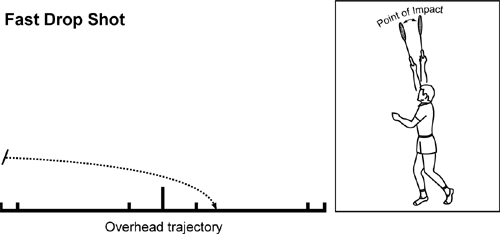The Change Process
I was learning the techniques of a drop shot in Badminton and the coach had spotted a flaw in the way I hit this shot - I bend my arm while playing the shot and hence giving away the hint to the opponent that I’m about to drop. The coach taught me the right technique and asked me to give it a try.

He hit a birdie up for me to drop and I immediately went back to my unorthodox way of playing it. This happened a few times and he started to get annoyed and yelled - ‘That’s not how I taught you’. As he gave the next one, I still hit it the unorthodox way and yelled back - ‘I’m trying but it’s hard!’.
I’ve struggled to change my drop shot technique since then and this blog post is my observation of the change process.

-
Accept and Commit - The first step in the change process is to accept the need to change and commit to it. This sounds trivial but is really important. Before I took the private lessons, some of my other friends have told me that I’m not playing the drop shot correctly but I never felt the need to change. The 2 things that changed when I heard it from the coach -
a. Respect - Hearing it from a much better player helps.
b. Reason - He also reasoned why I need to change my technique and how this helps in deceiving the opponent.
-
Force it - The first few times, I literally had to force myself to play it the right way. A couple of points on this -
a. Break it down - Breaking down the shot into smaller steps helps.
b. Pseudo Environment - Also, this was a lot easier during practice - when I was focussing on getting the technique right and not winning the point.
-
Focus on the Long Term - Everytime you try to change for the better, you see a performance drop initially.
a. The first time you start lifting weights, you end up with sore muscles.
b. The first time you start getting up early, you are more sleepy during the day.
c. When you try to lose weight, you miss the good food.
Change takes time, infact the longer the habit - the harder the process and the more time it takes to change. This is why I feel the first step is so important and that’s what should help you past this stage and not give in.
-
Don’t be too hard on yourself - This probably only applies to things far more important than recreational sport. There is some disappointment with the initial drop in performance and also frustration in not able to adapt quickly. Don’t be too hard on yourself and remember that you’re good enough. Quoting Rohan from his blog post here -
There is no end to the number of things people around us might want of us. At any given moment, they could want us to be more patient, caring, confident, assertive, energetic, enthusiastic, passionate, analytical or entrepreneurial. And, yes, we could get better at being some of those things too. But, peace, happiness and real change come when we stop ourselves on this endless road and say – “I am enough.”
Kaushik Rangadurai
Code. Learn. Explore
